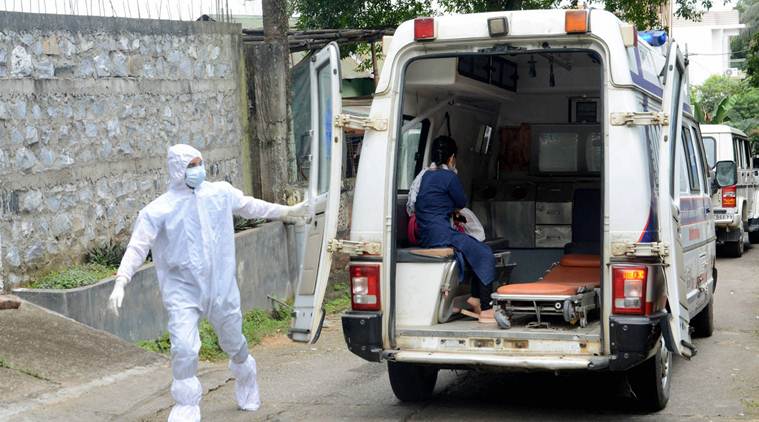The Centre has told the three eastern states that have imposed part or full lockdowns that while it is “not questioning” their decision, this period “must be utilised gainfully” by implementing a three-pronged strategy to contain the spread of the infection, The Indian Express has learnt.

During an extended video conference on Wednesday, the Centre asked the three states to implement a three-point strategy during the period of the curbs: one, redefining of containment zones, provisioning of buffer zones, and adding new containment zones; two, strictly monitoring patients in home isolation through teleconsultation or physical surveillance; and three, augmenting bed capacity in hospitals.
Story continues below this ad
The three states were told that “merely announcing or notifying a lockdown is not sufficient,” a senior government official told The Indian Express. “You (the states) must know what is it that you have to do during the period of lockdown. You not only enforce and ensure that lockdown is implemented strictly but you also plan during the lockdown,” the states were told, according to the official.
“If you do not plan during this period,” the official said the Centre told the states, “after the lockdown is lifted, the situation will rapidly climb back to where it was”.
On the first aspect – zoning – the three states were asked to “relook” at the way they have defined containment areas and, “if there is a need [to] please redefine them”.
“The states posed a question as to how to do we redefine them,” the official said. “We (the Centre) told them that they needed to look at the new cases, and where they were coming from. Also, in percentage terms, are your existing containment zones contributing a substantial percentage of new cases? If they are, then the enforcement strategy within the containment zone has left a lot to be desired.”
Story continues below this ad
A large number of new cases in the containment zones meant they had been “lax”, the official said the states had been told. “That means when you declare geography as containment zone, then you have to do a house-to-house search of active cases, test them, track and trace their contacts.”
Also, “if a substantial number of cases were coming from outside the containment area”, the states must “redefine the containment zones”, the official said. “And if the cases are coming from areas that are adjoining the containment areas, you (the states) need to see whether you have defined your buffer zones,” the states were told, according to the official.
On the second aspect – monitoring – the Centre focused on the strategy for surveillance of home isolation patients, the official said. “We asked them (the states) how they were monitoring,” the official said. “If they are not, we have asked them to follow the model of Karnataka and Delhi, where a home-care monitoring agency, through a phone-based app, does the early morning and late evening calls to all the patients to check if they have any symptoms.”
A second model of monitoring, in which there is a surveillance officer for each district, was also discussed during the video conference, sources said. “The officer must be asked to constitute teams with Anganwadi and ASHA workers who can do house-to-house visits to check for symptoms,” the senior official said. “We have asked them (the states) to do it either by telephone or physically.”
Story continues below this ad
The third aspect that the three states have been asked to focus on, is “their bed, ICU and oxygen bed requirements”, the official said.
“The basic focus (of the video conference) was that mindlessly notifying a lockdown serves no one. We are not questioning that decision (of the lockdown),” the official said. “But we have told them that they must utilise the (lockdown) time gainfully. These things have to be done. There may be other things the states want to do, that is up to them. However, they have to implement these things.”
Present during the meeting were specialists from AIIMS Kalyani, AIIMS Patna, and the upcoming AIIMS in Guwahati. “There were questions related to clinical management of Covid-19 patients, and all the issues were addressed by the Centre,” the source said.
The West Bengal containment zones in which the lockdown has been extended are located in Kolkata, Jalpaiguri, Malda, Cooch Behar, Raiganj, and Siliguri. The lockdown in Assam’s Jorhat town began to be relaxed on Wednesday.
Story continues below this ad
In Bihar, cases have increased by almost 96% over the last fortnight. There have been surges in Patna, Bhagalpur, East Champaran, West Champaran, and Begusarai.

 A suspected COVID-19 woman being taken to a hospital in Guwahati during lockdown (PTI)
A suspected COVID-19 woman being taken to a hospital in Guwahati during lockdown (PTI)






